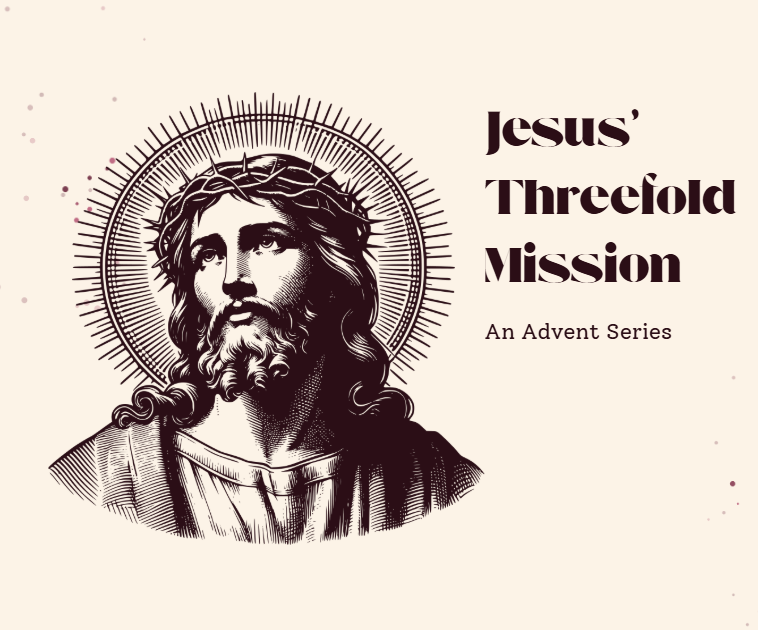You Are Ready to Talk About Jesus

Telling a story about your best friend is easy. Recounting Jesus healing the paralytic man is hard (Mark 2:1-12). Talking about what kind of woman your mother was is easy. Talking about what kind of Savior you have in Jesus is hard. The person hearing these stories about your friend or your mother might not know them. They aren’t likely to be personally affected by your stories. You can speak freely without concerning yourself with the impact your stories leave. This is not the case with Jesus. We share Jesus in order to leave an impact. After all, he is not only our Savior, but he is the Savior of our conversation partner as well!
One thing that makes talking about Jesus hard, however, is this: When you talk about Jesus, you’re talking about someone about whom your conversation partner probably knows something about. You may have had a conversation where someone challenged you with questions to dispute the historical evidence about Jesus and the Bible. Maybe you’ve had someone pose a theological or ethical dilemma to you that you couldn’t solve. Maybe you even have experienced the cold laughter of a critic of Christianity, who says they’ve “heard it all before” and have no time for “Bible-thumpers.” In these cases, consider this as an explanation for what just happened: you encountered your conversation partner mid-stream. They’ve heard some things about Jesus or the Bible before, so you’re jumping into a conversation that has already begun.
I believe that this is the cause of one of the biggest roadblocks to sharing our faith. During our Sunday Morning Bible Studies over the last few months, we’ve been discussing the art and science of conducting good conversations with people, perhaps to win an audience for our presenting the gospel. But several times along the way, you (participants in the study) have indicated to me that fear of being asked a question you don’t know the answer to is one of the greatest and most common sources of anxiety surrounding evangelistic conversations. I can see why!
Our culture can be so snobbishly intellectual that we often feel bad (as in, morally guilty!) for not knowing every answer to every question. Our conversation partner may not mean any harm, but when we’re caught off guard by a sincere, deep question, we feel like we’ve failed. We’ve internalized the message that it’s a sin to not know everything. We might even feel like we’re letting Jesus down in these moments.
When Peter wrote, “Always be prepared to give an answer to everyone who asks you…” I don’t think he was talking about philosophical arguments for the existence of God. Instead, that verse ends with “…to give the reason for the hope that you have. But do this with gentleness and respect” (1 Peter 3:15). This means that you are ready to bear witness for Christ as soon as you have an answer to the question, “Why do you have hope?” Because you have found your source of hope in the gospel. Compare these thoughts to Colossians 1:21-23
“21 Once you were alienated from God and were enemies in your minds because of your evil behavior. 22 But now he has reconciled you by Christ’s physical body through death to present you holy in his sight, without blemish and free from accusation—23 if you continue in your faith, established and firm, and do not move from the hope held out in the gospel. This is the gospel that you heard and that has been proclaimed to every creature under heaven, and of which I, Paul, have become a servant.”
Both Paul and Peter are referring to our hope which comes from the gospel. The gospel is nothing more or less than the powerful (Romans 1:16-17) message of reconciliation to God through Jesus Christ’s sacrifice and resurrection. You have the gospel. You’re ready to talk about Christ, because through the Word, you know him.
Only the gospel can change hearts from stone to flesh (Ezekiel 11:19-20). Only the gospel can pierce through intellectual snobbery and create humble, childlike faith (1 Corinthians 1:20-25). Only the gospel can take an enemy of God and turn him/her into a Spirit-led soul living in Christ’s peace (Romans 8:7-10). When anxiety threatens to get in the way of your witness, remember that this gospel is powerful and effective, and it is exactly what your unbelieving friend or relative needs. Your witness will be effective not when you have all the answers, but when you present the good news of Jesus.
I don’t mean any of this to say that seeking answers to thoughtful questions is pointless, however. God has gifted many Christians with intelligence and tact to speak to those who are intellectually curious about Christianity. If you trust in the power of the gospel, yet still find yourself anxious to prepare to meet some deeper questions, you might want to consider reading one of these works! I certainly have not read every volume in circulation on these topics, but here are some titles I have personally found helpful.
- Clearing a Path for the Gospel: A Lutheran Approach to Apologetics by Arthur Eggert and Geoffrey Kieta.
This book is definitely on the intellectual side of things, but it takes a measured and humble approach to defining and tackling argumentative issues you might encounter with a more philosophically advanced conversation partner.
- Mere Christianity by C.S. Lewis.
This timeless classic presents core beliefs of Christianity in a delightful and at times playful way. Lewis is a master of metaphor and down-to-earth language, and it shows in this valuable work. Although some of his personal beliefs don’t match ours, the core humble attitude of the book is worth imitating in our conversations.
- The Reason for God: Belief in an Age of Skepticism by Tim Keller.
This book walks the middle road between intellectual density and overt simplicity. Keller has a pastoral and loving tone behind his purposeful and honest confrontation of some of the logical assumptions that can mislead a person from hearing and trusting the gospel.
Dear brother or sister reading this, you are safe and rescued by the powerful gospel of Jesus Christ. The Lord who died and rose for you now speaks to you through his powerful Word of promise, hope, and comfort. Cherish this message for yourself, and share it with others as often as you have opportunity. I pray that, if you make use of any of the books I mentioned above, they only assist you in our mission to bring the good news to hurting people – and to do so confidently!
Pastor Mike Cherney







